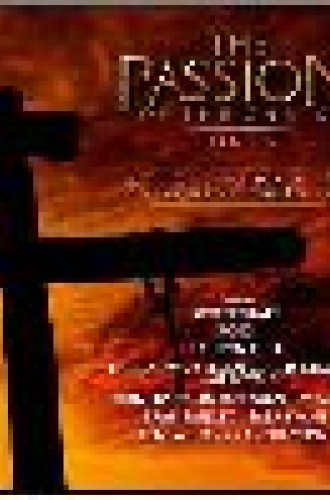Sound alternatives
While heavy on processed drums, the disc makes for compelling listening. The young women, products of China’s top orchestras, perform with ancient instruments such as the gu zheng (a zither with up to 25 strings), pipa (four-stringed lute) and dizi (bamboo flute). A cover of Coldplay’s “Clocks” is pleasantly twisted, “New Classicism” is a Western classical medley set to a hip-hop beat and “Reel Around the Sun” fuses Celtic and Chinese influences. All reinforce the maxim that music is a universal language.
You’d think two soundtracks to Mel Gibson’s film (one a traditional score, the other a classic song collection) would be enough, but here comes a third release featuring fresh material inspired by the film. The results are mixed; Scott Stapp, in his first post-Creed effort, sounds stilted on “Relearn Love,” while Third Day, Stephen Curtis Chapman and MercyMe deliver strident but typical anthemic fare on “I See Love.” Still, this album boasts a depth of talent, from hard rockers P.O.D. to pop upstart Big Dismal. The standout moment comes via Lauryn Hill, whose funky cut “The Passion” is redolent with emotion worthy of its title.
With two recent releases Campbell has set herself apart as a storyteller of intelligence and depth. The waters run with sublime stillness on “Sing Me Out.” Campbell’s gentle manner is far from boring—especially when she sings of garden visions on the droll “Jesus & Tomatoes.” She touches the saddest subjects with crackling emotion devoid of sap. “Who Will Pray for Junior” reveals a dying mother’s thoughts on leaving her son behind as an orphan: “I’ve made my peace with everything but this / But that’s the thing that keeps me hanging on.”
With a style reminiscent of the Latino rock act Los Lobos in its more pensive moments, Ortega weaves a spell with a heartfelt majesty that reflects his dusty southwestern roots. He is a storyteller whose voice and manner emanate calm in the storm; he also excels at creating miniature films in sound. “Mildred Madalyn Johnson” tells the tale of an old woman who loves writing long letters and driving fast. On the traditional side, Ortega’s version of “Rock of Ages” exudes lullaby loveliness.
This instrumental rerelease, from tracks first issued in 1966 and ’67, shows why Lloyd Green was one of Nashville’s dominant pedal-steel guitarists. Spanning 20 tracks in a blaze of 42 minutes, Green shows an instrumental versatility that today’s country musicians might imitate in speed, but not in substance. On “Peddle Paddle,” Green’s licks skip with the fervent urgency of a tap dancer hopping across hot coals (listen for the telltale chair squeak at the end, and picture the sweat dripping off Green’s brow). But it isn’t all speed and slippery licks; in “Touch My Heart,” Green hits a mellow honky-tonk stride with resonant, palpable sadness. (Available at artistdirect.com.)
The brains behind Ceili Rain, Bob Halligan Jr. has fashioned a unique niche: he’s a plainspoken lyricist who isn’t afraid to preach, even at the risk of sounding preachy. What saves Halligan (as on the album Erasers on Pencils) is a biting, self-deprecating humor, which shines full flower on “Change.” “My Faith, Your Power” begins: “I live in a dungeon, my mind made for me / I peel like an onion, in layers of ‘woe is me.’” The title song (perhaps stiff but nonetheless earnest) implores listeners to donate coffee money for the suffering in Africa, Ecuador and beyond.
Trent Dabbs may not be well known outside his hometown of Jackson, Mississippi, or his current home, Nashville. He creates a heady atmosphere spun from his bracing, quavery voice, and melodic songs that suggest a stew of Counting Crows, R.E.M. and a dash of Radiohead. Dabbs can be downright haunting, too, as on the song “Worst Fears,” an acoustic trip into the depths of loneliness. The song ends with a single set of hands clapping in a low-fi swirl, the shutting of a tape recorder, and then silence.
A treasure on Chicago’s cabaret scene, Judy Roberts can play an inexhaustible catalogue of songs from memory. On this album travel and the notion of being transported serve as the loose theme knitting together ten tunes that vary in style from bossa nova (Antonio Carlos Jobim’s “Agua de Beber”) to jazz pop (Billy Joel’s “New York State of Mind”). Accompanied by the tight, deft phrasing of tenor saxist Greg Fishman, Roberts combines elegant piano playing and enticing vocals to yield an album that will do wonders to ward off the winter chill.
Here’s a match made in musical heaven: Harper, an incendiary rocker with a spiritual bent, and the Blind Boys of Alabama, a legendary vocal group that has endured for more than six decades. On “Take My Hand,” wah-wah guitar and the repeated refrain of “take my hand” create a tag that could encourage even the most downtrodden sinner to take heart. “Pictures of Jesus” pairs electric piano and church organ to create a jaunty feel recalling The Band or Leon Russell:“I’ve got a picture of Jesus/ And with Him we shall be forever blessed.”
Like P.O.D., Project 86 and Creed, Pillar has established itself by blending what might seem like contradictory forces: serrated, driving textures (with a good measure of screaming thrown in) and unabashed expressions of faith. On “Here,” the four-member band does a good job of mixing up melodies and harmonies in ways that are often more Beatlesque than brutal; “Holding On” contains a jaunty chorus that latches nicely to the rollercoaster chorus. Pillar takes a gentler path on “Rewind,” a minor-key meditation on redemption that’s anchored by acoustic guitar and a distant backing swirl of electric guitar feedback.
This Canadian duo of Rob and Jen Slocumb calls to mind The Sundays, The Cranberries, Natalie Merchant and Kate Bush, though there is a smoky simplicity to “Forget October” that prevents comparison. With production stripped of studio razzle-dazzle and heavy reverb, Martha’s Trouble creates an atmosphere by taking a mid-tempo road less traveled—much of the magic coming courtesy of Jen Slocumb’s rich, honeysuckle-sweet voice. On “Don’t Hide Away,” her plaintive singing entices the listener as does Dolores O’Riordan without the excessive hiccuping. More tribal and subdued is the title track, perfect—as is much of this CD—for a Saturday in a coffeehouse.
It’s a genre and a magazine. CCM has been covering contemporary Christian music for more than 25 years, and this double-CD is one of several planned volumes celebrating the best. But are these songs truly “the best,” and is CCM (the music) truly a “genre”? Musically speaking, it’s a mix of styles from hip-hop (dc talk’s “What If I Stumble”) to orchestrated, triumphant pop (Rich Mullins’s “Awesome God”). This is a good introduction to CCM, but there is a lyrical stiffness, absence of drama and predictability to much Christian music—many of these songs included.
















